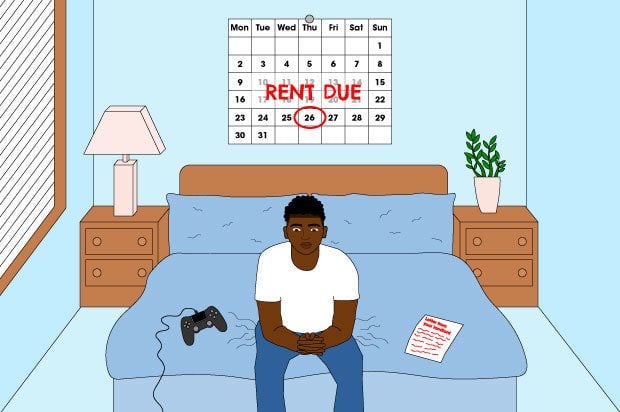Coronavirus: What are my tenancy rights?

Hi, I’m Monica! I graduated from the University of Leicester with a Law degree and completed the Legal Practice Course at Leicester Institute of Legal Practice. I have worked in a specialist employment firm and at a multi national commercial firm in Bristol. I’m very passionate about helping young people and I like the work The Mix does.
Your tenancy rights
Since the outbreak of coronavirus within the UK, there have been many changes to the way we live our lives. For example, how much we socialise with others, as well as the impact on our work and home life
There are many of you who rent from social and private rented accommodation who may be worried how this may impact on your living situation. To help out, the government has brought in measures to protect your rights, should you be affected by this. To help you understand what help is available and to empower you to protect your rights, here is a handy guide.
I am worried that I may get evicted if I miss paying rent
This is a valid concern many people may have if they’re told to take unpaid leave from work or generally fall behind on rent. The good news is that the government is bringing in emergency laws meaning private tenants can’t be evicted from their homes for at least three months if they are struggling with their rent.
The new laws, which were announced by the government on 18 March, means landlords in England and Wales will be banned from evicting tenants for at least a three-month period. Scotland and Northern Ireland are planning to announce similar laws.
What is an illegal eviction?
It is also important to know that even before the coronavirus outbreak it was illegal for your landlord to evict you without taking proper steps. The signs of an illegal eviction are:
- Making you leave your accommodation without a court order or any proper notice
- Locking you out of your home – even if this is a temporary measure
What if my landlord has given me notice?
Even if your landlord has handed you their notice prior to the new law coming in, they will be unable to apply for the court to evict you during the next three months.
What can I do if I get into rent arrears?
A concern for many tenants is not being able to pay their rent on time because of extended time off work due to illness. If you’re struggling to pay your rent, the best thing to do is speak to your landlord, as everyone is aware of the current situation and many housing associations and landlords are coming up with written agreements, where you can agree to a rent reduction or late payment of rent.
The government has also given buy-to-let landlords a payment holiday if their tenants are unable to pay rent, which should reduce pressure on landlords.
What happens after the three-month period?
The government is bringing in these emergency laws to make life easier for tenants and landlords. After the end of this period the government is expecting landlords to work together with their tenants to come up with an affordable repayment plan. This should take into account the tenants’ individual circumstances.
If landlords are unable to come up with a reasonable repayment plan, tenants should either contact their local council for assistance or contact the Citizen’s Advice Bureau to discuss their rights.
What benefits are available?
If for any reason you need to take time off and are not paid, or you’re given sick pay that is less than your usual wages, you may be able to claim benefits, or any existing benefits may increase.
You can seek advice if you’re currently receiving housing benefit or tax credits. Employers must pay statutory sick pay (SSP) worth £94.25 a week to employees, which includes agency workers. The period to receive SSP has temporarily changed during the coronavirus outbreak meaning you will not have to wait until day four of illness, and will instead get paid from day one.
If you’re out of work, you can apply for universal credit. All information relating to this is on the government website.
For anyone already getting housing benefits or universal credit housing element, you can apply for a discretionary housing payment. In order to apply for this, you can contact your local council. This extra payment may be able to help those struggling to pay rent.
Here are some reliable and trustworthy pages with relevant information which may be useful:
Housing advice: https://england.shelter.org.uk/housing_advice/coronavirus
UK government updates: https://www.gov.uk/government/news/complete-ban-on-evictions-and-additional-protection-for-renters
Free legal advice: https://www.citizensadvice.org.uk/housing/
Finding your local council: https://www.gov.uk/find-local-council
If you’re feeling anxious about this, or anything else, The Mix are here to help. Head to our support services to speak to one of our experts, or to find peer-to-peer advice and reassurance.
Next Steps
- Shelter offers advice on all housing issues. Get advice here or by calling their housing helpline 0808 800 4444. If you're in Scotland, use http://scotland.shelter.org.uk/
- Our Crisis Messenger provides free, 24/7 crisis support across the UK. If you’re aged 25 or under, you can text THEMIX to 85258
- Chat about this subject on our Discussion Boards.
By Holly Turner
Updated on 23-Mar-2020
No featured article










